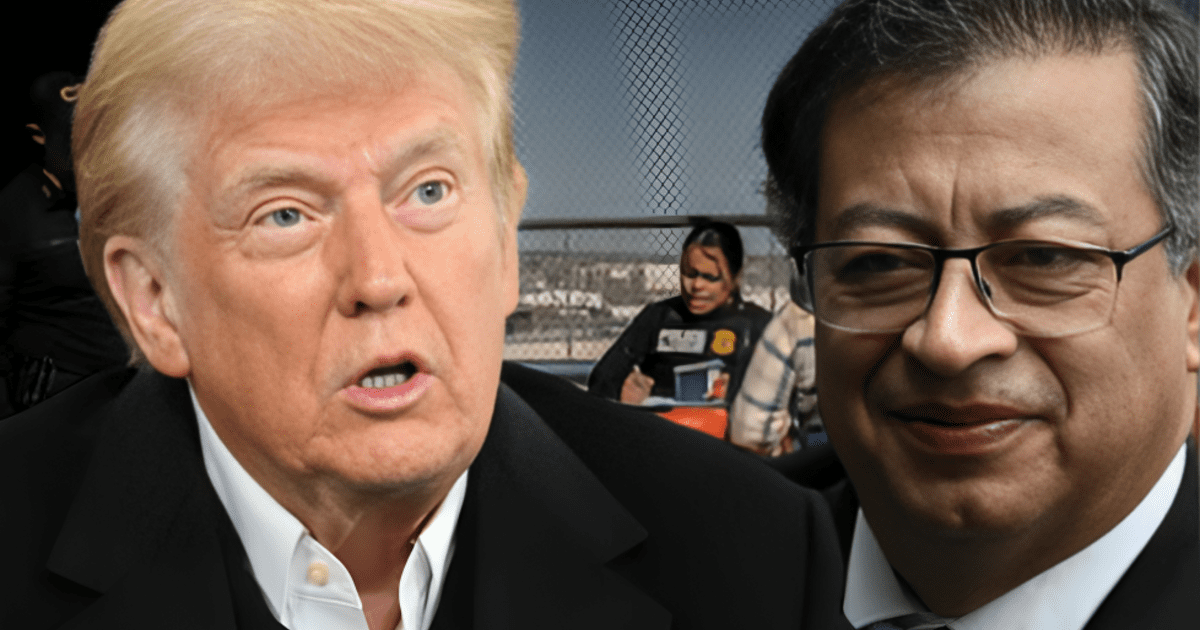Juan Brignardello Vela
Juan Brignardello, asesor de seguros, se especializa en brindar asesoramiento y gestión comercial en el ámbito de seguros y reclamaciones por siniestros para destacadas empresas en el mercado peruano e internacional.




The recent announcement by President Gustavo Petro regarding the use of the presidential plane for the “dignified return” of deported Colombians has generated a wave of reactions both nationally and internationally. This measure comes amid growing tension between Colombia and the United States, following the Colombian president's decision to prevent the arrival of U.S. military planes carrying deported Colombian migrants. From the Casa de Nariño, the government has emphasized the need to treat migrants as “patriots and subjects of rights,” reaffirming its commitment to protecting Colombian citizens abroad. The government’s official statement indicates that the presidential plane will be used to facilitate the return of compatriots who are on deportation flights, ensuring they will not be treated as exiles. This declaration underscores the government's stance in defense of human rights and respect for the dignity of Colombians, regardless of their migration status. Additionally, a Unified Command Post has been convened, which will include various state entities, with the aim of establishing protocols to guarantee proper treatment for the deported individuals. On the other hand, former President Iván Duque has harshly criticized Petro's decision, calling it “tremendous irresponsibility” and warning about the potential diplomatic repercussions it could entail. Duque argues that it is a moral duty to welcome deported compatriots and has questioned the lack of effective diplomatic dialogue to manage the situation. This exchange of criticisms reflects the political polarization in Colombia and the differing views on the management of migration and bilateral relations with the United States. The context has become even more complicated with the recent decision by the U.S. government to temporarily suspend visa processing for Colombian citizens. This measure, taken in response to Colombia's refusal to accept deportation flights, has intensified tensions between the two countries. From the White House, concerns have been expressed about Colombia's migration policy, while Petro has defended his position as a priority of respect toward migrants. Additionally, the president has pointed out that there is a significant number of irregular U.S. citizens in Colombia and has urged the regularization of their migration status. This statement highlights the complex interrelationship between Colombian migration to the United States and the migration flows from other countries to Colombia, further complicating the situation. The upcoming Extraordinary Assembly of the Community of Latin American and Caribbean States (CELAC), scheduled for January 30, presents an opportunity for the Colombian government to address these crucial issues. During this meeting, it is expected that strategies for cooperation on migration and the protection of human rights in the region will be discussed. Meanwhile, the situation of approximately 190,000 unauthorized Colombian immigrants in the United States remains a reality that Petro's government will need to address effectively. The current administration has emphasized its intention to lead regional efforts to tackle migration challenges, but tensions with Washington could hinder those objectives. This landscape of migration crisis and complex diplomatic relations demands a coordinated and sensitive response from the Colombian government. How this situation is managed will not only affect the deported individuals and their families but will also have repercussions on Colombia's international image and its ability to maintain constructive relations with other countries, especially with the United States. Petro's stance, focused on dignity and respect for human rights, represents a significant shift from previous approaches. However, Duque's criticism and that of other sectors advocating for a more conciliatory approach highlight the fragility of political decisions in a context of polarization and external pressures. This raises a crucial question: Will Petro's government be able to balance its ideals with diplomatic demands and the realities of migration? The answer to this question will be fundamental for the future of Colombia and its role on the international stage.



